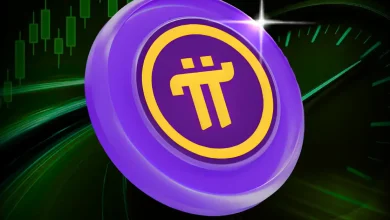
Brazil’s central bank (BCB) plans stricter oversight of electronic forex (eFX) platforms.
Crypto exchanges offering international transfers may also fall under these rules.
Brazil’s central bank (BCB) is moving to tighten oversight of the foreign exchange market with a new set of proposed rules. While the framework is primarily aimed at electronic forex platforms (eFX), the ripple effects could reach far beyond traditional finance—potentially reshaping how cryptocurrency exchanges operate in Brazil.
New Oversight Rules for Brazil’s Forex Market
In its newly released consultation paper, the Central Bank of Brazil outlined plans to bring electronic forex trading platforms under stricter regulation. The proposals would require both existing and new eFX operators to apply for official permits to continue offering services.
Key requirements include:
- Licensing: All operators must obtain regulatory approval.
- Data Reporting: Platforms must report detailed client transaction data to the central bank.
- On- and Off-Ramps: Customer deposits and withdrawals would be restricted to designated financial channels.
Perhaps the most significant change is a transaction cap of $10,000 per transfer for individuals. Platforms would also need to display the full cost of each transaction upfront, ensuring greater transparency and leaving “little room for hidden fees,” according to the consultation document.
Why Crypto Platforms May Be Caught in the Net
Although the BCB does not directly mention crypto in its proposals, industry observers note that the rules could indirectly affect exchanges. Any crypto exchange facilitating cross-border transfers or allowing swaps between tokens and foreign currencies could be brought under the same framework.
This would mean:
- Adapting to licensing requirements similar to those imposed on forex platforms.
- Meeting stricter reporting obligations on user transactions.
- Enforcing the $10,000 per-transaction cap for international transfers.
For global platforms serving Brazilian customers, these limits could present serious challenges. “Even overseas crypto exchanges may find their Brazilian users restricted by these rules,” one analyst noted, “potentially reshaping how money flows across borders.”
What Stricter Forex-Style Rules Mean for Crypto Traders in Brazil
Brazil is already one of the most active cryptocurrency markets in Latin America. With these new proposals, traders could face additional hurdles when conducting large transactions or sending crypto-linked payments abroad.
While the measures may restrict some activity, experts suggest the central bank’s goal is risk management rather than outright prohibition.
As one observer put it, “Regulators appear to be walking a fine line balancing innovation with oversight.”
The new framework could bring clarity but also limit how freely Brazilian crypto users can engage in international trading.
Latin America’s Rising Appetite for Digital Assets
These regulatory moves come against a backdrop of surging digital asset adoption across Latin America. In inflation-hit economies like Venezuela and Argentina, stablecoins such as Tether’s USDT have become popular tools to preserve value.
In Brazil itself, demand continues to rise. Nubank, one of the country’s largest digital banks, recently announced plans to pilot a stablecoin-based payments platform, underscoring how mainstream institutions are exploring blockchain-driven financial solutions.
With Brazil positioned as a regional leader, the way its regulators handle crypto integration could shape the future of digital assets across Latin America.
Never Miss a Beat in the Crypto World!
Stay ahead with breaking news, expert analysis, and real-time updates on the latest trends in Bitcoin, altcoins, DeFi, NFTs, and more.
FAQs
Brazil’s new rules, while focused on forex platforms, will likely affect crypto exchanges that facilitate international transfers or foreign currency swaps, requiring them to get licenses and adhere to strict reporting rules.
Yes, the new proposals require platforms to report detailed client transaction data to the central bank, meaning you may need to provide more information for international transactions.
Brazil is a leader in digital asset adoption. The new rules aim to balance financial innovation with risk management, ensuring stability and transparency as the market grows across Latin America.
The central bank’s goal is to increase oversight and transparency in the foreign exchange market, which includes crypto activities, to prevent illicit activities and protect users from hidden fees.
Trust with CoinPedia:
CoinPedia has been delivering accurate and timely cryptocurrency and blockchain updates since 2017. All content is created by our expert panel of analysts and journalists, following strict Editorial Guidelines based on E-E-A-T (Experience, Expertise, Authoritativeness, Trustworthiness). Every article is fact-checked against reputable sources to ensure accuracy, transparency, and reliability. Our review policy guarantees unbiased evaluations when recommending exchanges, platforms, or tools. We strive to provide timely updates about everything crypto & blockchain, right from startups to industry majors.
Investment Disclaimer:
All opinions and insights shared represent the author's own views on current market conditions. Please do your own research before making investment decisions. Neither the writer nor the publication assumes responsibility for your financial choices.
Sponsored and Advertisements:
Sponsored content and affiliate links may appear on our site. Advertisements are marked clearly, and our editorial content remains entirely independent from our ad partners.








